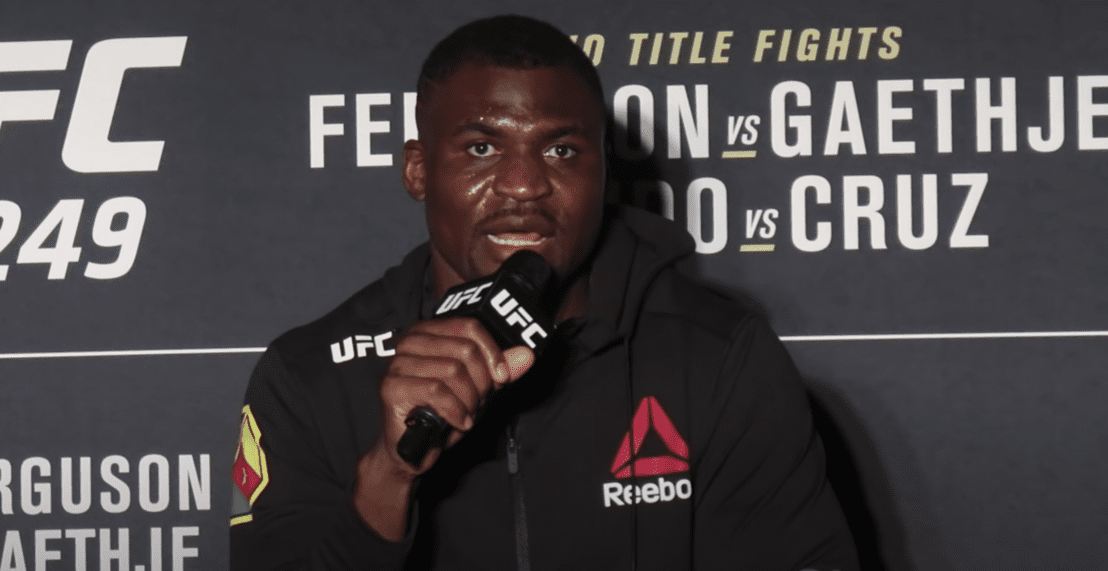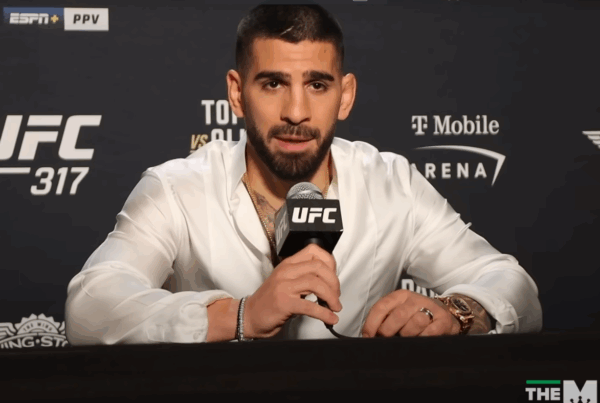The issue of MMA judging is one which comes up time and time again.
Last weekend’s UFC main event fight between T.J. Dillashaw and Cory Sandhagaen was about as close a fight as one can watch, with Dillashaw ultimately getting the win by split decision on the scorecards. However, many fans and media members alike had scored the fight for Sandhagen and it has once again coaxed a debate as to the muddied waters of MMA judging.
Recent amendments to the judging criteria (or clarifications, really) stressed the specifics of how a fight should be scored, with particular emphasis being given to what constitutes a 10-8 round, or a rarely-seen 10-7 round.
But despite these rules being out there for anyone to read, the issue of fight scoring is often one which can be read on social media on Sunday mornings — but Francis Ngannou says that the debate needs further clarity.
The fighter has to go home unrewarded with all that frustration – and half of their money – for a job well done. Something needs to be done for these athletes getting robbed on the score cards. #justiceforfighters
— Francis Ngannou (@francis_ngannou) July 26, 2021
“It’s interesting how we see injustice done to the fighters by some judges, we talk about it, and then move on from it the next day, only to get pissed off again when it happens the next time,” the UFC heavyweight champion wrote on Twitter.
“The fighter has to go home unrewarded with all that frustration – and half of their money – for a job well done. Something needs to be done for these athletes getting robbed on the score cards.”
He then added the hashtag #justiceforfighters.
Ngannou isn’t often the type of fighter who requires cageside judges to score his fights given that he rarely sees the final bell. Interestingly though, his three career defeats have come in the three fights in which he went the distance. No one could argue with the decision in his defeat to Stipe Miocic or the dud with Derrick Lewis. He was also defeated in his second career bout against Zoumana Cisse in a fight which comprised of just one five-minute round.




